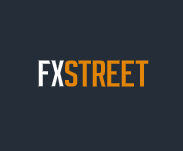
The Crypto Task Force met with El Salvador's Digital Asset Commission leaders to discuss cross-border crypto regulations.
The meeting involves the launch of a sandbox pilot program, with each scenario leveraging a maximum of $10,000.
The program draws much of its strategy from Commissioner Hester Peirce's February statement on crypto regulations.
The Securities & Exchange Commission's (SEC) Crypto Task Force met with El Salvador's National Commission on Digital Assets (CNAD) representatives to discuss cross-border regulation and a proposed cross-border sandbox project.
Crypto Task Force attempts to secure cross-border crypto regulation
Officials of the Crypto Task Force met with members of El Salvador's CNAD, former Goldman Sachs partner Heather Shemilt and Perkin Law firm to establish a cross-border sandbox for crypto, according to a briefing of the minutes shared on the SEC website.
The meeting centered around a collaboration between the two national agencies to replicate CNAD's crypto regulatory strategy in the US. The project falls under the cross-border sandbox pilot program.
The pilot program will introduce a select group of experienced participants who will deploy limited funds — capped at $10,000 per scenario — to manage risks while generating valuable regulatory insights.
The sandbox program seeks to establish two objectives. The first is to arm US-licensed finance brokers with crypto licenses from El Salvador's CNAD. The second is to create two small-scale tokenized assets by a CNAD-licensed tokenization company.
The SEC aims to use this information to guide its data-gathering efforts, working in collaboration with the sandbox participants to determine the appropriate scope and number of tokens to be issued. The agency also claims that the results will provide practical insights for shaping future US digital asset regulations.
Under the first scenario, the US-licensed broker will partner with a CNAD-licensed tokenization company to help tokenize the assets of a real estate company in El Salvador. Afterward, the company will issue digital tokens that will be deemed "non-securities" under US laws.
The second use case scenario will involve a small company raising up to $10,000 through tokenized shares, in line with SEC-permitted crowdfunding. The company will then issue tokens tailored to the agency's guidelines for proper market compatibility.
Both scenarios aim to help regulators monitor the sale of the tokens to help guide the establishment of a proper crypto regulatory framework in the US.
The pilot program draws much of its strategy from SEC Commissioner Hester Peirce's statement on crypto regulations released in February. In the statement, she mentioned a few forward strategies that could help the agency "figure out what the final rules should be and what interim steps might help to foster innovation in the meantime."
Meanwhile, new SEC Chair Paul Atkins stated after his swearing-in that his top priority would be to "provide a firm regulatory foundation for digital assets."
* The content presented above, whether from a third party or not, is considered as general advice only. This article should not be construed as containing investment advice, investment recommendations, an offer of or solicitation for any transactions in financial instruments.


